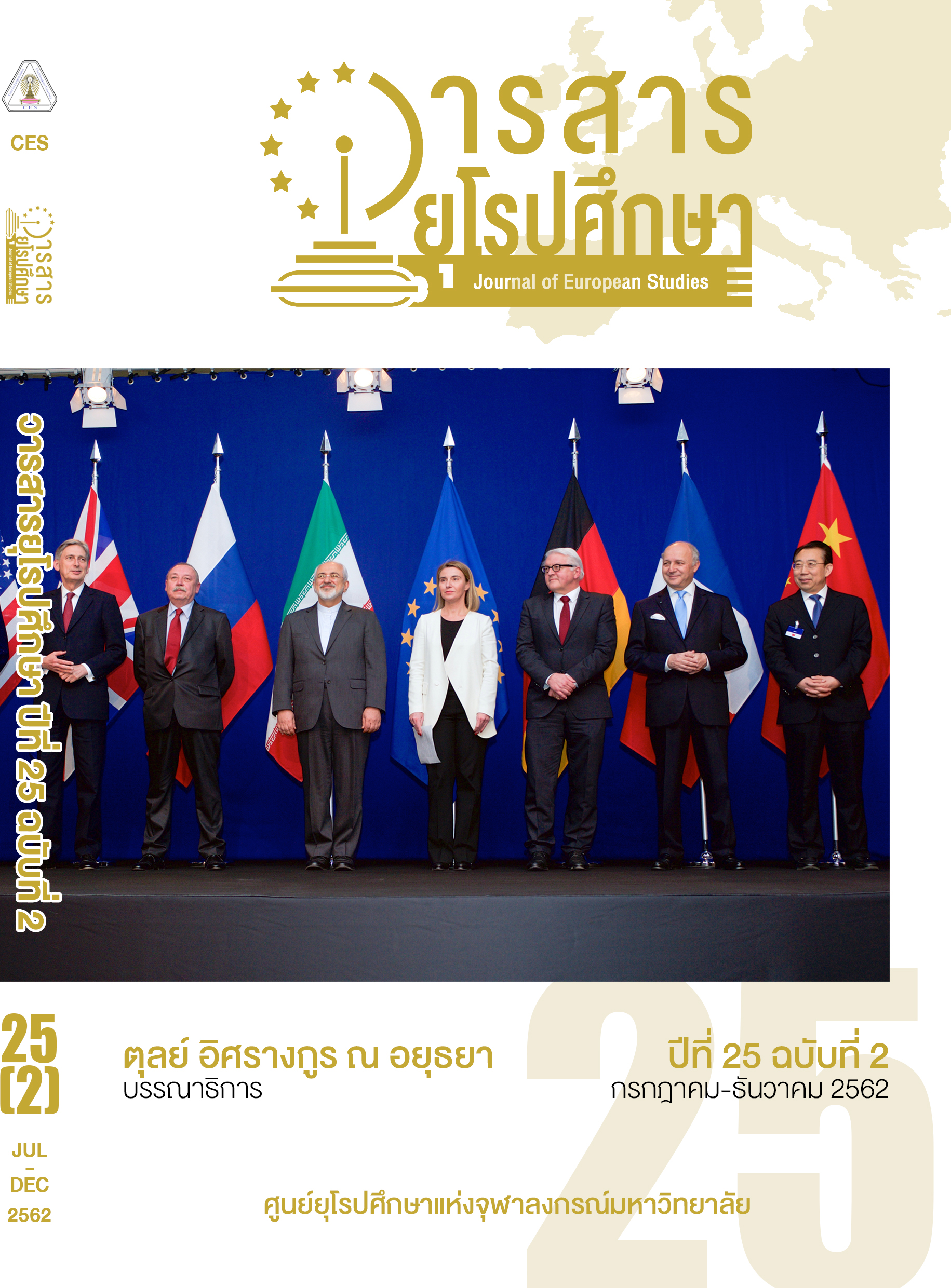Explaining Populism and Euroscepticism in European Countries
คำสำคัญ:
populism, Euroscepticism, European Union, Brexitบทคัดย่อ
The waves of populism are sweeping across Europe leaving the continent and its ambition shaken. One of the most significant turning points is Brexit – the UK’s decision to leave the EU following the referendum that will forever change the fate of both the UK and the EU. Given the Brexit incident as a result of populism in the UK, it is interesting to explore how the rise of populism relates to Euroscepticism in other settings across Europe. This article seeks to delve into the relationship between populism and Euroscepticism movements in three different European sub-regions including post-financial-crisis Southern Europe, Western and Northern Europe along with post-communist Central and Eastern Europe. The author argues that as the EU is generally perceived by the populist movements at both end of the political spectrum as the enemy, left-wing and right-wing populism are naturally prone to being Eurosceptic. However, as an attempt to comprehend this phenomenon; different political, economic, social and historical contexts of each sub-regions must also be taken into consideration as they lead to different levels of Euroscepticism and success of each populist movement.



